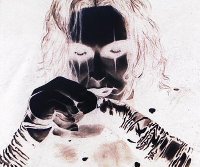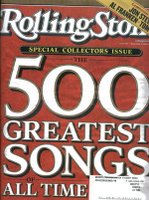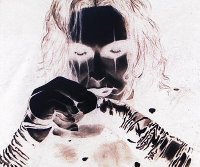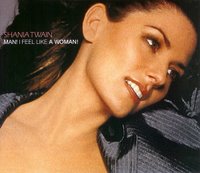Number 757 - Shania Twain
Genre:Pop
 Now that Shania Twain lives in my country you are all probably thinking i camp out in a tent on her estate.
Now that Shania Twain lives in my country you are all probably thinking i camp out in a tent on her estate.Well see i don't "tent" so i bought a Camper Trailer!
(so much more comfy to perve on georgous woman that way)
Now where did i leave my binnoculars.
 "SHE may not be an outlaw in the tradition of Waylon and Willie, but in the eyes of Nashville, Shania Twain is a renegade nonetheless. Putting aside her inclination to bare her navel (a no-no in Music City USA), the Canadian-born singer can lay claim to the title of most successful crossover artist in country music history. Not only do her singles regularly invade both the pop and country charts, but she's among the elite few Nashville artists to nab a cover on Rolling Stone (Tanya Tucker managed to do so in 1974, Garth Brooks in 1993). Moreover, diehard traditionalists notwithstanding, Twain's five-year recording career has seen her garner enough country music awards to fill the stage of the Grand Ole Opry. Even the name "Shania"—the origin of which lies in the language of the Ojibway Indian tribe—translates roughly into the phrase, "I'm on my way."
"SHE may not be an outlaw in the tradition of Waylon and Willie, but in the eyes of Nashville, Shania Twain is a renegade nonetheless. Putting aside her inclination to bare her navel (a no-no in Music City USA), the Canadian-born singer can lay claim to the title of most successful crossover artist in country music history. Not only do her singles regularly invade both the pop and country charts, but she's among the elite few Nashville artists to nab a cover on Rolling Stone (Tanya Tucker managed to do so in 1974, Garth Brooks in 1993). Moreover, diehard traditionalists notwithstanding, Twain's five-year recording career has seen her garner enough country music awards to fill the stage of the Grand Ole Opry. Even the name "Shania"—the origin of which lies in the language of the Ojibway Indian tribe—translates roughly into the phrase, "I'm on my way." "Born August 28, 1965, in Windsor, Ontario, Eileen "Shania" Twain and her four siblings were reared in Timmins, Ontario (located some 500 miles north of Toronto), by her mother Sharon and adoptive father Jerry Twain. A forester and prospector by trade (and an Ojibway Indian himself), Jerry Twain rarely had steady work, and the family's financial circumstances were often dire. Music, if not money, was a constant in the household, and as a toddler Twain delighted in the songs of Waylon Jennings, Tammy Wynette, and Willie Nelson, as well as in those of various pop artists of the day. She showed promise as a singer even as a pre-schooler, and by the time she was 8, she was playing guitar, writing songs, and performing publicly, often roused from sleep by her parents to perform at local watering holes after 1 a.m., when the minor was allowed on liquor-serving premises."
"Born August 28, 1965, in Windsor, Ontario, Eileen "Shania" Twain and her four siblings were reared in Timmins, Ontario (located some 500 miles north of Toronto), by her mother Sharon and adoptive father Jerry Twain. A forester and prospector by trade (and an Ojibway Indian himself), Jerry Twain rarely had steady work, and the family's financial circumstances were often dire. Music, if not money, was a constant in the household, and as a toddler Twain delighted in the songs of Waylon Jennings, Tammy Wynette, and Willie Nelson, as well as in those of various pop artists of the day. She showed promise as a singer even as a pre-schooler, and by the time she was 8, she was playing guitar, writing songs, and performing publicly, often roused from sleep by her parents to perform at local watering holes after 1 a.m., when the minor was allowed on liquor-serving premises." "Pinning much hope on her daughter's talents, Sharon Twain encouraged Shania's aspirations throughout her high school years, and the fledgling singer-songwriter divided her summers between working at McDonald's, helping her father, and fronting Top 40 cover bands. Upon graduating, she headed to Toronto to pursue music more seriously. In 1987, however, Twain's world was shattered by tragedy when both her parents were killed in a car crash. Returning home to care for her younger siblings, she began supporting the household by singing and dancing at Ontario's Deerhurst Resort, where the experience of combining music with theatrical performance helped her develop a feel for showmanship that would later be put to good use."
"Pinning much hope on her daughter's talents, Sharon Twain encouraged Shania's aspirations throughout her high school years, and the fledgling singer-songwriter divided her summers between working at McDonald's, helping her father, and fronting Top 40 cover bands. Upon graduating, she headed to Toronto to pursue music more seriously. In 1987, however, Twain's world was shattered by tragedy when both her parents were killed in a car crash. Returning home to care for her younger siblings, she began supporting the household by singing and dancing at Ontario's Deerhurst Resort, where the experience of combining music with theatrical performance helped her develop a feel for showmanship that would later be put to good use." " Twain continued to write during this period, and her first manager eventually succeeded in persuading a representative of Mercury Records in Nashville to listen to her demo tape. Impressed by Twain's compositional skills, the executive signed the young singer, who was then still known as Eileen Twain. Stating that her first and last names didn't flow well together, he also urged her to change her surname. Considering such an alteration an insult to her father's memory, Twain instead opted to change her first name, settling on the Ojibway moniker so well known today. In a bittersweet twist of fate, Twain's first album featured only one of her original songs. Released in early 1993, the self-titled debut garnered little attention. Fortunately, however, after seeing her midriff-baring video for the song "What Made You Say That," veteran rock producer Robert "Mutt" Lange determined he had to meet the woman behind the navel"
" Twain continued to write during this period, and her first manager eventually succeeded in persuading a representative of Mercury Records in Nashville to listen to her demo tape. Impressed by Twain's compositional skills, the executive signed the young singer, who was then still known as Eileen Twain. Stating that her first and last names didn't flow well together, he also urged her to change her surname. Considering such an alteration an insult to her father's memory, Twain instead opted to change her first name, settling on the Ojibway moniker so well known today. In a bittersweet twist of fate, Twain's first album featured only one of her original songs. Released in early 1993, the self-titled debut garnered little attention. Fortunately, however, after seeing her midriff-baring video for the song "What Made You Say That," veteran rock producer Robert "Mutt" Lange determined he had to meet the woman behind the navel" "Lange—whose credits include albums by AC/DC, Def Leppard, the Cars, and Bryan Adams—began work with Twain on her second album in late 1993. In December of that year, the pair sealed their futures together in a more fundamental way: they got married. Though some have speculated that Twain saw in Lange her own personal Svengali (interestingly, she counts Bo Derek—no stranger to Svengali-types—among her closest friends), all evidence indicates that the two are deeply in love. Of course, love didn't prevent the couple from ratcheting Twain's career up into the stratosphere. Released in February 1995, Twain's second album, The Woman in Me, did considerably better than its predecessor, eventually selling more than 10 million copies to easily surpass sales records of any previous album by a female country artist. Propelled by the accusatory, yet peppy, number "Whose Bed Have Your Boots Been Under?", the album went on to spawn seven more hit singles, half of which reached No. 1 on the country charts. Nonetheless, The Woman in Me met with predictable backlash. Many country diehards complained either about its cost ($500,000—exorbitant by Nashville standards), its lyrics (overly assertive for a woman by Nashville standards), or about the simple fact that Twain wasn't a product of Nashville (not acceptable by Nashville standards). "
"Lange—whose credits include albums by AC/DC, Def Leppard, the Cars, and Bryan Adams—began work with Twain on her second album in late 1993. In December of that year, the pair sealed their futures together in a more fundamental way: they got married. Though some have speculated that Twain saw in Lange her own personal Svengali (interestingly, she counts Bo Derek—no stranger to Svengali-types—among her closest friends), all evidence indicates that the two are deeply in love. Of course, love didn't prevent the couple from ratcheting Twain's career up into the stratosphere. Released in February 1995, Twain's second album, The Woman in Me, did considerably better than its predecessor, eventually selling more than 10 million copies to easily surpass sales records of any previous album by a female country artist. Propelled by the accusatory, yet peppy, number "Whose Bed Have Your Boots Been Under?", the album went on to spawn seven more hit singles, half of which reached No. 1 on the country charts. Nonetheless, The Woman in Me met with predictable backlash. Many country diehards complained either about its cost ($500,000—exorbitant by Nashville standards), its lyrics (overly assertive for a woman by Nashville standards), or about the simple fact that Twain wasn't a product of Nashville (not acceptable by Nashville standards). " "More hurtful by far, however, was an article published in Twain's hometown newspaper asserting that she had lied about her heritage. The piece accused her—erroneously, it turns out—of falsely claiming Indian ancestry (her biological father is French-Irish) in order to lend a "mythic" element to her background. Lost in the furor was the fact that Twain had donated all the proceeds from two hit singles—"Home Ain't Where His Heart Is (Anymore)" and "God Bless the Child"—to organizations that provide food for underprivileged children. Perhaps one of the grandest indicators of Twain's enduring success and acceptance into the singing elite came in April 1998, when she was invited to perform at VH1's Divas Live concert, an intimate gathering that featured contemporary music's foremost singers. Twain held her own alongside the legendary Aretha Franklin, as well as contemporary divas Celine, Mariah, and Gloria. The momentous occasion was documented on the CD Divas Live, released in October 1998"
"More hurtful by far, however, was an article published in Twain's hometown newspaper asserting that she had lied about her heritage. The piece accused her—erroneously, it turns out—of falsely claiming Indian ancestry (her biological father is French-Irish) in order to lend a "mythic" element to her background. Lost in the furor was the fact that Twain had donated all the proceeds from two hit singles—"Home Ain't Where His Heart Is (Anymore)" and "God Bless the Child"—to organizations that provide food for underprivileged children. Perhaps one of the grandest indicators of Twain's enduring success and acceptance into the singing elite came in April 1998, when she was invited to perform at VH1's Divas Live concert, an intimate gathering that featured contemporary music's foremost singers. Twain held her own alongside the legendary Aretha Franklin, as well as contemporary divas Celine, Mariah, and Gloria. The momentous occasion was documented on the CD Divas Live, released in October 1998" "One of the greater concerns of Twain's fans (if not of her record label) has been her refusal to perform on a large scale in support of her albums. In tandem with the release of 1997's Come on Over, however, she promised to rectify that small glitch in a career otherwise in perfect trajectory. Happily, 1998 saw her make good on her word: The singer embarked on a North American tour that will see her eventually touch down in more than 60 cities, and her popularity shows no sign of abating. Reviews of Twain's shows have been mixed, but no such similar ambivalence has been noted at ticket counters. Meanwhile, sales of Come on Over have surpassed the 17 million mark"
 What does Rolling Stone Magazine think about Shania Twain?
What does Rolling Stone Magazine think about Shania Twain?"The successor to Come on Over, the biggest-selling album by a female artist of any stripe, Shania Twain's Up! would be a knockout even if it were limited to its one disc of country music. Together with hubby "Mutt" Lange, this crossover firebrand writes wise, personable, wildly contagious songs, and there are nineteen of them here. No duds, and no dull bits.
But the second, relentlessly kinetic pop disc is a revelation. It's the same nineteen songs, but shot through with wacky Abba, Queen, Roxette and Missy Elliott production and arrangement flavors. Whether surrounded by fiddles or synth-y guitar, tracks such as "Thank You Baby!" convey motherly intimacy and an undeniable pop sense alongside those trademark exclamation points."
 All in all its very hard to find anyone who does not enjoy the star she so deservedly shines.
All in all its very hard to find anyone who does not enjoy the star she so deservedly shines.I think proof of the pudding will be to see if Shania can make another "Super Selling" Album that topples her previous work and if anyone could do it... its definately her.
Rolling Stone Top 500 Songs ranked this song at Number (17 Million Albums is peanuts to what we sell) and the Album ranked at Number (We are not changing our minds!)
This song has a total crowbarred rating of 65.7 out of 108
Search by Genre: ALT POP-ALT PUNK-ALT ROCK-ALTERNATIVE-BIZARRE-BLUES-BRIT POP-COMEDY-COUNTRY-CROONER-DANCE-DISCO-DO WOP-ELECTRONIA-FOLK SINGER-FOLK ROCK-FUNK-GARAGE ROCK-GLAM ROCK-GOSPEL-GRUNGE-GUITARIST-HAIR ROCK-HARD ROCK-HIP HOP-INDIE POP-INDIE ROCK-INDUSTRIAL ROCK- INSTRUMENTAL-JAZZ-LAZY SUNDAY-NEW WAVE-NU ROCK-POP-POP ROCK-PROG ROCK-PSYCHEDELIC ROCK-PUNK POP-PUNK ROCK-R&B-RAP-REGGAE-ROCK-ROCK N ROLL-SINGER SONGWRITER-SKA ROCK-SKIFFLE-SOFT ROCK-SOUL-SOUTHERN ROCK-SURF ROCK-SYNTH POP-TENOR-VOCAL
By The Year 1955 to 2005:
1955, 1956, 1957, 1958, 1959, 1960, 1961, 1962, 1963, 1964, 1965, 1966, 1967, 1968, 1969, 1970, 1971, 1972, 1973, 1974, 1975, 1976, 1977, 1978, 1979, 1980, 1981, 1982, 1983, 1984, 1985, 1986, 1987, 1988, 1989, 1990, 1991, 1992, 1993, 1994, 1995, 1996, 1997, 1998, 1999, 2000, 2001, 2002, 2003, 2004, 2005

underlay trademe
Whakapapa
Labels: Shania Twain 757













0 Comments:
Post a Comment
<< Home